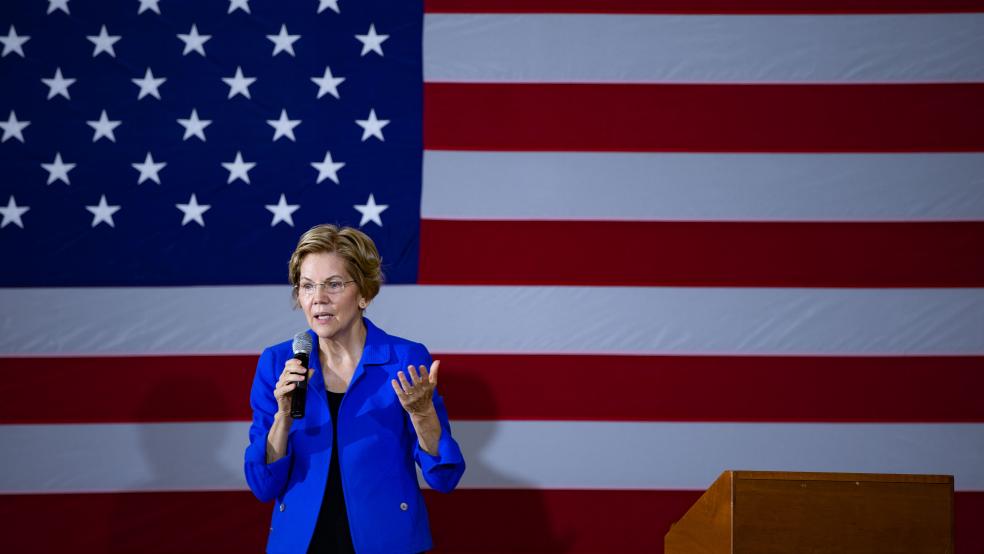Sen. Elizabeth Warren unveiled on Friday a multi-year plan to transition to Medicare for All, outlining a series of immediate reforms on a path toward a universal, single-payer health care system.
In her new proposal, Warren defended Medicare for All as “the best way to cover every person in America at the lowest possible cost” while addressing the increasingly pressing question, “how do we get there?”
Warren said she would seek to pass major health care legislation in her first 100 days as president that would significantly expand insurance coverage and take steps to start reducing costs. Americans over the age of 50 would be given the option of joining a more generous version of Medicare, and a pubic insurance option for people of all ages would compete with private, employer-based insurance plans. All American children would be covered, as would everyone with income below twice the poverty level. Adults earning more than that would pay “modest” fees to participate.
Warren’s plan includes numerous provisions intended to reduce costs and complexity, including anti-corruption reforms, limits on lobbying and new rules governing drug prices. The Massachusetts senator also vowed to “reverse Trump’s sabotage” of the Affordable Care Act and to strengthen Medicare and Medicaid.
Legislation to complete the transition to Medicare for All would come “no later than my third year in office,” Warren said. “By this point, the American people will have experienced the full benefits of a true Medicare for All option, and they can see for themselves how that experience stacks up against high-priced care that requires them to fight tooth-and-nail against their insurance company.”
The bottom line: Warren’s transition plan seems designed to blunt one of the main criticisms of her Medicare for All proposal — namely, that it would suddenly eliminate private insurance for about 150 million people, in a move that some Democrats worry could be too radical for voters. Nevertheless, Warren still faces potential pressure from progressives to her left, who want to hear clear and unambiguous support for the creation of a single-payer system, and more moderate voters to her right, who may still worry that her plan represents too sweeping a change.
“Warren is trying to thread a very tricky political needle here,” said Larry Levitt of the Kaiser Family Foundation. “Warren clearly still supports Medicare for All, but she is not putting all of her eggs in that basket.”




